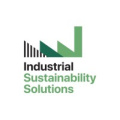
Elcogen
Summary
Elcogen is a European company specializing in solid oxide fuel cell (SOFC) and electrolyzer technology. Elcogen is a leading developer and manufacturer of SOFCs, which are advanced energy conversion devices capable of generating electricity from a variety of fuels, including hydrogen, natural gas, and biogas. These fuel cells are versatile, supporting a range of fuels like hydrogen and hydrocarbons, and they are known for producing lower greenhouse gas emissions compared to conventional fossil fuel technologies. Elcogen's technology supports decentralized power generation, which is critical for renewable energy integration. Elcogen collaborates with various international partners, including research institutions and industrial leaders, to advance fuel cell technology. Their products are part of several European projects aimed at demonstrating the viability of hydrogen and SOFC-based energy solutions in different applications.
Our principle
Cut through the green tape
We don't push agendas. At Net Zero Compare, we cut through the hype and fear to deliver the straightforward facts you need for making informed decisions on green products and services. Whether motivated by compliance, customer demands, or a real passion for the environment, you’re welcome here. We provide reliable information—why you seek it is not our concern.
Details
Company name
Elcogen
Headquarters
Tallinn, EST
Date of establishment
2001
Website
Products & Equipment

Elcogen is at the forefront of developing high-efficiency solid oxide technology, offering a comprehensive product lineup that caters to the growing demands for sustainable energy solutions. Their fuel cells use a variety of fuels—hydrogen, biogas, and natural gas—to generate electricity efficiently with low emissions. For electrolysis, Elcogen's technology focuses on producing green hydrogen, using solid oxide electrolyzers that operate at high efficiencies by splitting water into hydrogen and oxygen.



